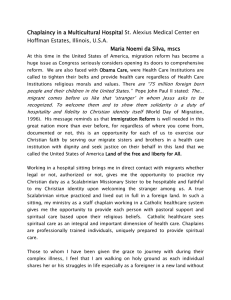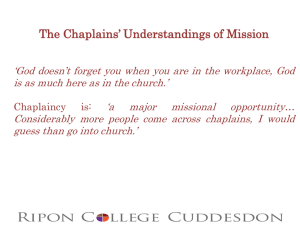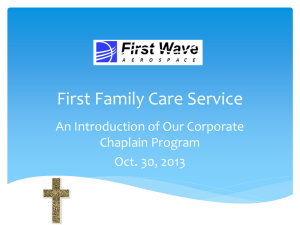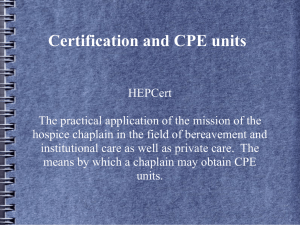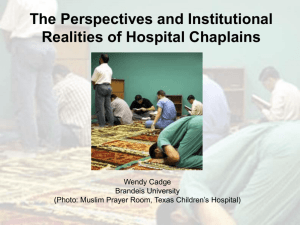Surprisingly I have been unable to find any case where... challenged on establishment clause grounds. I found one case where...
advertisement
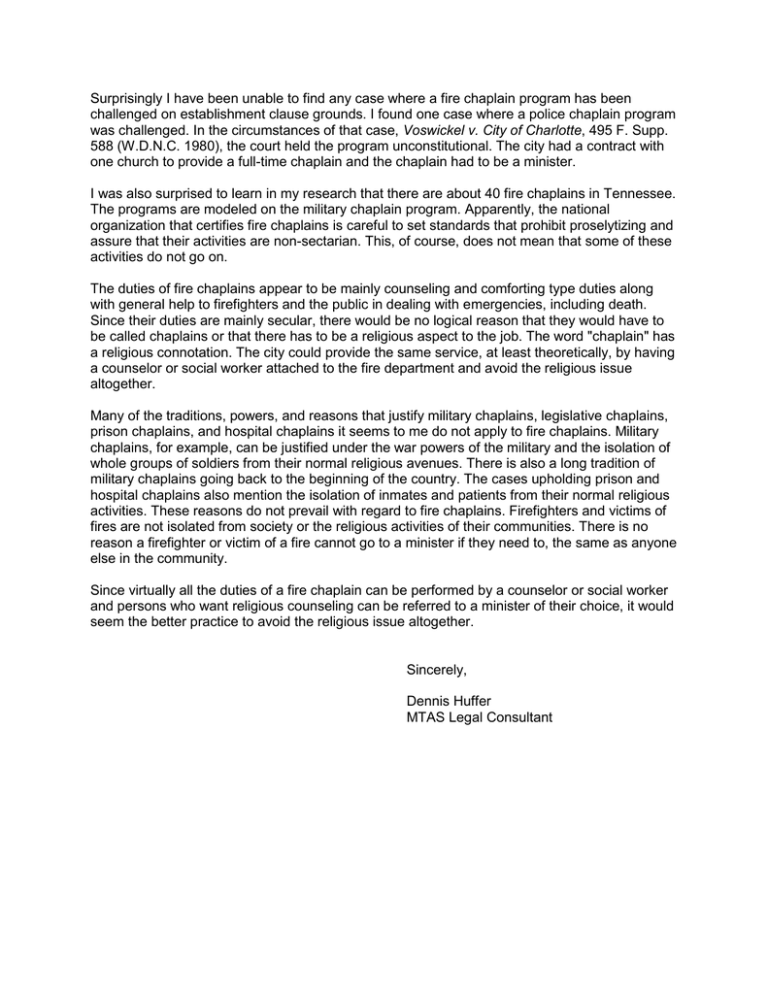
Surprisingly I have been unable to find any case where a fire chaplain program has been challenged on establishment clause grounds. I found one case where a police chaplain program was challenged. In the circumstances of that case, Voswickel v. City of Charlotte, 495 F. Supp. 588 (W.D.N.C. 1980), the court held the program unconstitutional. The city had a contract with one church to provide a full-time chaplain and the chaplain had to be a minister. I was also surprised to learn in my research that there are about 40 fire chaplains in Tennessee. The programs are modeled on the military chaplain program. Apparently, the national organization that certifies fire chaplains is careful to set standards that prohibit proselytizing and assure that their activities are non-sectarian. This, of course, does not mean that some of these activities do not go on. The duties of fire chaplains appear to be mainly counseling and comforting type duties along with general help to firefighters and the public in dealing with emergencies, including death. Since their duties are mainly secular, there would be no logical reason that they would have to be called chaplains or that there has to be a religious aspect to the job. The word "chaplain" has a religious connotation. The city could provide the same service, at least theoretically, by having a counselor or social worker attached to the fire department and avoid the religious issue altogether. Many of the traditions, powers, and reasons that justify military chaplains, legislative chaplains, prison chaplains, and hospital chaplains it seems to me do not apply to fire chaplains. Military chaplains, for example, can be justified under the war powers of the military and the isolation of whole groups of soldiers from their normal religious avenues. There is also a long tradition of military chaplains going back to the beginning of the country. The cases upholding prison and hospital chaplains also mention the isolation of inmates and patients from their normal religious activities. These reasons do not prevail with regard to fire chaplains. Firefighters and victims of fires are not isolated from society or the religious activities of their communities. There is no reason a firefighter or victim of a fire cannot go to a minister if they need to, the same as anyone else in the community. Since virtually all the duties of a fire chaplain can be performed by a counselor or social worker and persons who want religious counseling can be referred to a minister of their choice, it would seem the better practice to avoid the religious issue altogether. Sincerely, Dennis Huffer MTAS Legal Consultant
